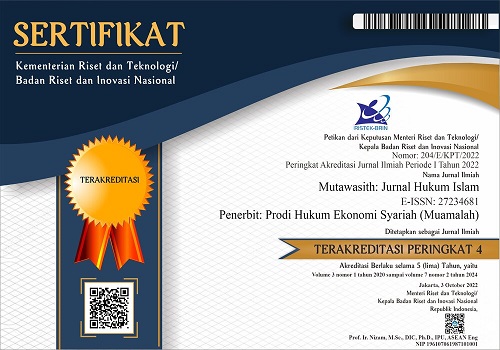Ijtihad Methods in Dealing with Nomophobia
Abstract
This paper discusses the application of ijtihad methods in dealing with nomophobia, which is the fear of being without a mobile phone. The study is qualitative in nature and uses a descriptive approach to collect data from various sources, including literature on ijtihad and nomophobia. The data collected will be analyzed using qualitative analysis techniques such as content analysis or thematic analysis. The negative impact of nomophobia on mental health is significant, including anxiety, depression, social isolation, and a decrease in quality of life. The paper proposes that using the ijtihad methods: qiyas, istislah, istihsan, istishab, sadd al-dhara’i, ijma, urf, and maqasid shari’ah, can provide a way to address this issue by encouraging critical thinking and reflection on the impact of technology on mental health. The paper concludes with various strategies that individuals can use to overcome nomophobia, including limiting screen time, avoiding mobile phone use before bedtime, and seeking support from friends and family.
Downloads
Authors retain copyright and grant the journal right of first publication with the work simultaneously licensed under a Creative Commons Attribution 4.0 International License that allows others to share the work with an acknowledgement of the work's authorship and initial publication in this journal.
















.png)




